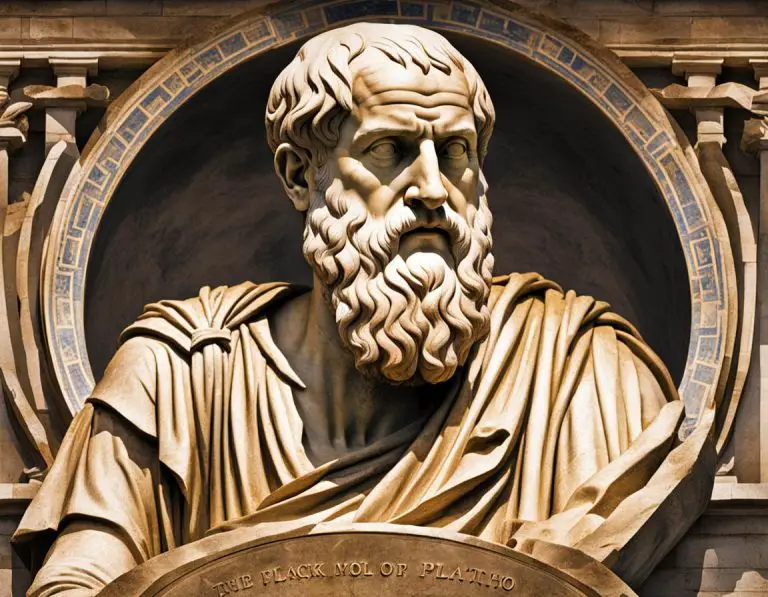Key Principle 6 Temperance
Temperance is a fundamental principle that the philosopher king upholds with utmost diligence. It involves exercising self-control and moderation in all actions and decisions, ensuring that all choices are made with a clear and rational mind. By embodying temperance, the philosopher king demonstrates a balanced and disciplined approach to leadership, setting a positive example for the community to follow.
Through the virtue of temperance, the philosopher king maintains a sense of harmony and order in their personal conduct, as well as in the governance of the state. By adhering to this principle, the ruler avoids impulsive and reckless behaviors, instead opting for thoughtful and deliberate actions that benefit the greater good. In essence, temperance serves as a guiding light for the philosopher king, enabling them to lead with wisdom and integrity.
Exercising selfcontrol and moderation in all actions and decisions
Exercising self-control and moderation in all actions and decisions is a fundamental principle that defines the essence of a Philosopher King. It entails the ability to govern one’s impulses and emotions, ensuring rationality and prudence in every choice made. Through this practice, a Philosopher King demonstrates strength of character and a deep understanding of the consequences that their actions may yield.
By embodying self-control and moderation, a Philosopher King sets a powerful example for their subjects, fostering a culture of thoughtful decision-making and ethical behavior within the community. This principle not only enhances the ruler’s credibility and trustworthiness but also creates stability and harmony among the people. Ultimately, the practice of self-control and moderation empowers a Philosopher King to lead with wisdom and integrity, guiding the society towards prosperity and enlightenment.
Key Principle 7 Selflessness
Selflessness is a key principle that defines the essence of the Philosopher King. It emphasizes the importance of prioritizing the well-being of the community over personal desires. The Philosopher King understands that true leadership involves sacrificing one’s own needs for the greater good of society. By embodying selflessness, the Philosopher King sets a powerful example for others to follow, fostering a culture of compassion and unity within the kingdom.
Putting the needs of the community above personal ambitions requires immense humility and empathy. The Philosopher King is deeply committed to serving the people with sincerity and dedication, recognizing that the prosperity of the kingdom hinges on collective welfare. Through their selfless actions and decisions, the Philosopher King gains the trust and respect of their subjects, creating a harmonious and prosperous society where every individual is valued and supported.
Putting the needs of the community above personal desires
For the philosopher king, one of the fundamental principles is a relentless dedication to prioritizing the needs of the community over personal desires. This selflessness is not just a virtue but a guiding ethos that permeates every aspect of their rule. The philosopher king understands that true leadership is not about self-aggrandizement but rather about serving the greater good of society.
By placing the needs of the community above their own personal interests, the philosopher king fosters a sense of unity and cohesion within the realm. This approach engenders a sense of trust and respect among the citizens, as they see their leader embodying the ideals of altruism and compassion. Ultimately, it is through selflessness that the philosopher king is able to create a harmonious society where the collective well-being takes precedence over individual gain.
Key Principle 8 Visionary Leadership
Key Principle 8: Visionary Leadership
Visionary leadership is a fundamental attribute of a philosopher king. These leaders possess the ability to set forth a clear vision for the future, guiding their community towards long-term goals and aspirations. By envisioning a brighter tomorrow, philosopher kings inspire others to work towards achieving collective success and progress. Through their foresight and strategic thinking, they pave the way for growth and development, steering their society towards a better tomorrow.
Moreover, visionary leaders do not merely focus on short-term gains but rather look towards the greater good of the community. They understand the importance of investing in sustainable initiatives that will benefit not only the present generation but also the generations to come. By fostering a culture of innovation and forward-thinking, philosopher kings ensure that their leadership leaves a lasting legacy of progress and prosperity for future inhabitants.
Setting longterm goals and inspiring others to achieve them
Setting long-term goals and inspiring others to achieve them is a fundamental principle that distinguishes a philosopher king. Visionary leadership entails developing a clear vision of the future and guiding the community towards that vision with determination and passion. Through effective communication and strategic planning, a philosopher king motivates individuals to work collectively towards common objectives.
Moreover, visionary leadership involves staying focused on the bigger picture and making decisions that align with the long-term goals of the community. By showcasing unwavering commitment and resilience in the face of challenges, a philosopher king cultivates a culture of perseverance and dedication among the people. This approach fosters trust and unity, ensuring that everyone is working towards a shared vision of prosperity and progress.
Related Links
Why Did Plato Emphasize the Allegory of the Cave
What is the Tripartite Soul in Plato’s Philosophy
